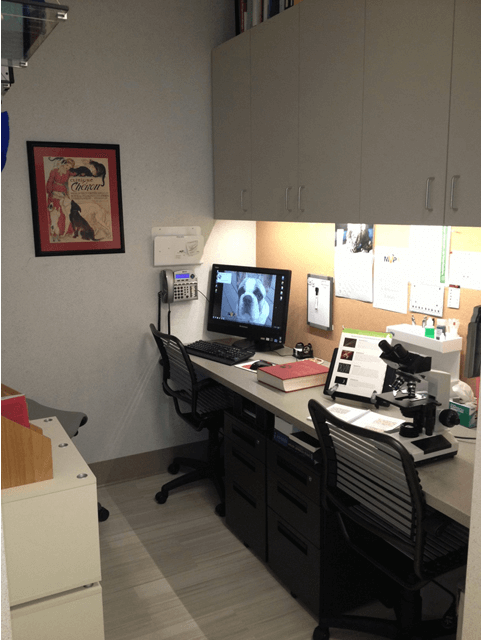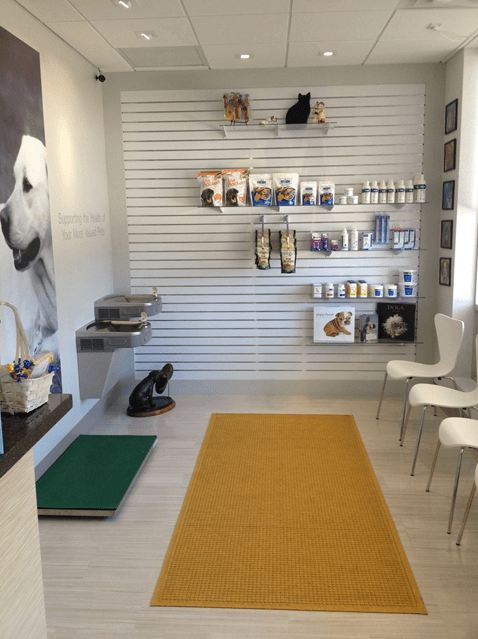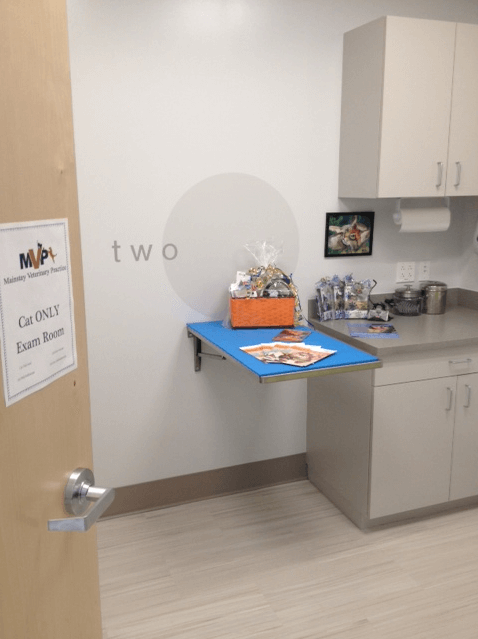The MVP Difference
There is a lot that goes on behind the front office of veterinary medicine that many clients and pet owners do not see or do not know occur. With the belief that education and visibility is the only way to truly choose the right vet for you, here is our attempt to shed some light into what you should look for in order to choose the best vet for you.
We often think that vet care is expensive and that we should go with the cheapest option and we agree that you should if you are satisfied with the quality of care. Oftentimes, we can compare human medicine to animal medicine:
- Does your child need a pediatrician appointment now or would a minute clinic work?
- Do you need urgent care or your primary care?
- Do you need the emergency room or walk-in urgent care?
These choices are all personal preferences. Similar to human medicine, there are a variety of different care levels in veterinary medicine and a time and a place for each one. It is important to note that the cheapest might not mean that you are getting a “good deal,” but, in some instances, could mean you are getting a different deal, or even, less.
Here are some items that we believe make Mainstay Veterinary Practice different:
1. Salaried Doctors
Did you know that most veterinarians in the United States are paid on a production/salary basis (“Pro-Sal”)? This means they have a medium range base-salary and then they receive a commission for the other part of their compensation. So, the more they sell and the more their clients spend, the more they make. Obviously, this is not readily available information.
MVP pays our veterinarians on a salaried basis. What you spend at our practice or choosing to perform a certain test or not has no effect on their pay check.
2. Private Practice
A majority of animal hospitals in the United States are owned by corporations. Some animal hospitals make no mention of being corporate-owned on their website for fear of losing clients if they were once a private clinic that sold to corporate. There are also “semi-corporate” practices, typically meaning a small corporation that owns 5-10 animal hospitals typically in a certain geographical area. There are also individually-owned private practices.
Mainstay is a woman-owned small business. There is only one Mainstay. Benefits for individually-owned practices are less emphasis on returns and greater emphasis on customer service and personalized medicine.
3. Brand Name Medications
Not all brand names and generics are created equal. Some vets are particular about having brand name drugs, especially for anesthetic procedures. Perhaps a generic could come with a cheaper price, but maybe the vet prefers the brand name for a reason. For example, there is a generic and cheaper version of propofol used to induce anesthetic patients, but the generic has a higher risk of complications.
MVP uses brand-name anesthetic medications.
4. Continuing Education
Veterinarians are required by state law to have 15 hours of continuing education (or continued learning) yearly in order to renew their veterinarian license. This allows them to continue to grow, learn and stay educated on the latest and greatest treatments and studies.
MVP veterinarians attend 50 continuing education hours per year, well over the 15 hours required for their veterinarian license. Additionally, our doctors attend 15 hours of feline-exclusive continuing education per year.
5. Surgical Procedures
Each veterinary practice will have its own surgical protocol for its patients.
- Is pre-anesthetic bloodwork being run on your pet that morning? What if your pet has an underlying disease that would react to anesthesia, but would be picked up in bloodwork?
- Is a catheter placed? The fastest way to get emergency drugs into a pet is through an already established catheter site.
- Are IV fluids run throughout the procedure? Did you know your pet could go into kidney failure if not?
MVP requires pre-anesthetic bloodwork on all surgery patients. All surgery patients receive IV catheters and fluids for surgical procedures (exception is feline neuter).
6. Single-Use Items
Each veterinary practice will have its own protocols on single or multi-use items.
- Are endotracheal tubes being re-used or does each surgery pet get its own tube that is then disposed of? Sterilizing them leaves them susceptible to holes, etc.
- Does your vet re-use ear cones or do they use disposable single-use cones? Obviously, it is cheaper to wash the ear cones and re-use them but can increase the chances of cross-contamination (a resistant staph ear infection from one pet could spread to another through the same ear cone).
- Does your vet re-use needles? Re-used needles are dull and more painful on injection.
- Does your pet receive a new needle after the vaccine is drawn up ensuring the sharpest needle is entering upon vaccination versus a dull needle?
MVP is a single-use practice. Each surgical patient at MVP has their own endotracheal tube that is thrown out after the procedures. All ear exams use a new and single-use ear cone. All syringes and needles are used one time. One needle is used to draw up a vaccine and the needle is then changed to a new needle for injection.
7. Machine Maintenance
Each veterinary practice will have its own maintenance schedule.
- Does your vet maintenance their anesthetic machine yearly by a certified technician? This ensures that the amount of anesthetic gas and oxygen the machine says it’s giving is actually what the pet is getting.
- Do they spore test their autoclave to ensure that the machine is in fact getting hot enough to actually sterilize equipment? By cutting out these expenses, a vet could lower prices.
MVP’s equipment is serviced exactly according to manufacturer guidelines and logged meticulously.
8. Euthanasia
Does your vet pre-sedate the animal prior to euthanasia? A lot of vets don’t. After all, it is an added cost.
MVP strongly believes in sedating pets prior to administering euthanasia solution, regardless of the added expense, because it is what we believe is most peaceful for the pet.
9. Storefront
Is your vet investing in the storefront? Are the posters 15-years-old? Is the equipment outdated? Are there new magazines in the lobby? If there is outdated stuff, you can be assured that more important items are outdated too.
MVP works hard to keep a clean and up-to-date storefront, including our client educational materials.
Mainstay Veterinary Practice is not the cheapest option. There will always be cheaper options. We want to be the most affordable for the quality of care and service we provide.
There are no two procedures that any two vets would perform the exact same. It’s not apples to apples. There can’t be price matching. Choosing your vet is a personal preference and there are thousands of decisions that go into pricing that we want our clients to be aware of.
The difference for MVP is that our doctors and our team work with you to determine what we think is best for the animal and there is no compromising. We are an advocate for animals that can’t speak.
















